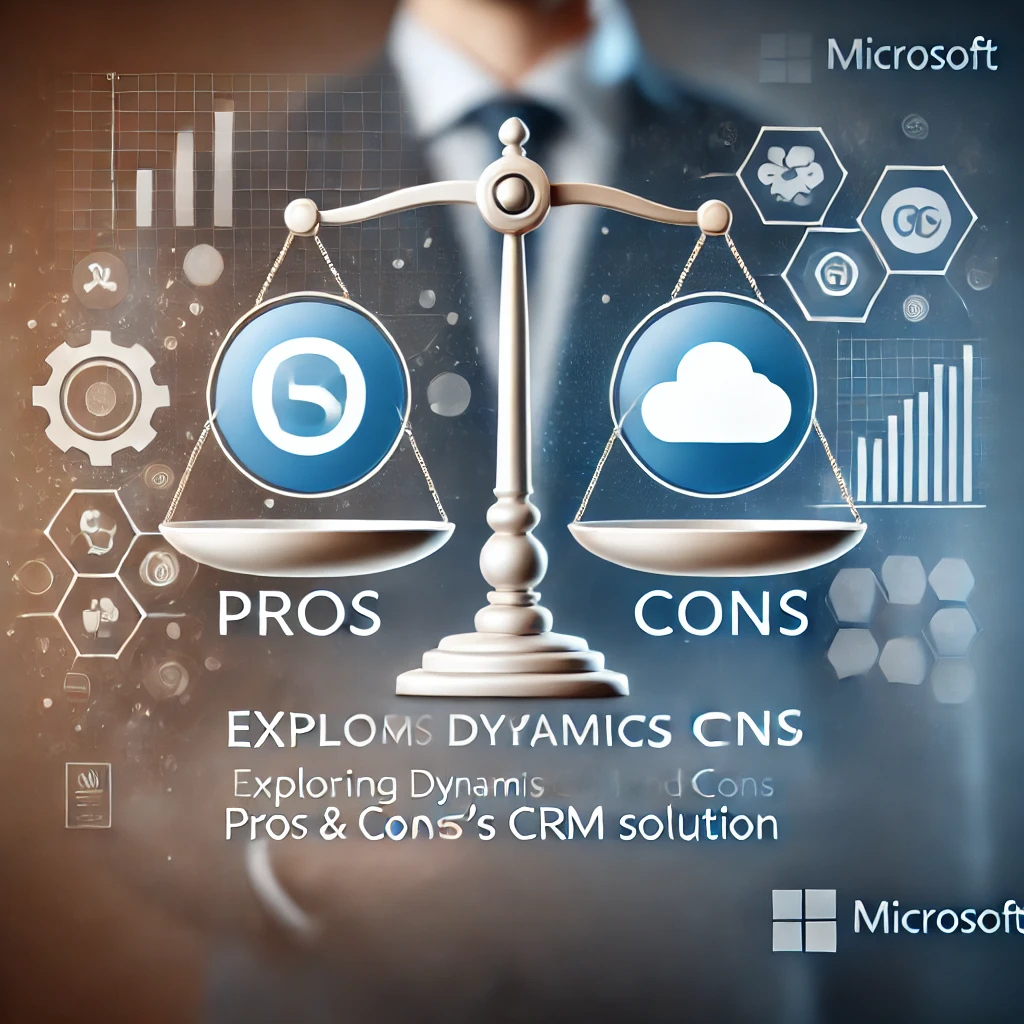Dynamics CRM: Pros and Cons to Know Before You Commit
When it comes to Customer Relationship Management (CRM) software, Microsoft Dynamics CRM is one of the most recognized names. It helps businesses organize customer data, improve communication, and streamline sales and service processes.
But like any technology, it’s not perfect. To decide if Dynamics CRM is right for your business, it’s important to understand both the advantages and the potential drawbacks.
👍 Pros of Dynamics CRM
Seamless Microsoft Integration
If your business already relies on Microsoft products, this is a huge plus. Dynamics CRM connects easily with Outlook, Office 365, SharePoint, and Power BI, keeping workflows smooth and data unified.
Scalability
From small startups to large enterprises, Dynamics CRM scales with you. As your business grows, it can handle more users, larger data sets, and more complex processes without losing performance.
Customization
Every business works differently, and Dynamics CRM can be shaped to fit. You can configure custom fields, entities, workflows, and forms to match your exact processes.
Reporting and Analytics
The platform includes powerful dashboards, reports, and charts that make it easier to spot trends, measure performance, and make data-driven decisions.
Unified Customer View
Dynamics CRM gives you a 360-degree view of customer interactions across sales, marketing, and service. That makes personalization easier and helps build stronger relationships.
Mobile Accessibility
With apps for iOS, Android, and Windows devices, sales and service teams can stay productive in the field and respond quickly to customers.
Security
Role-based access, encryption, and audit trails are built in, helping protect sensitive customer data from breaches or misuse.
👎 Cons of Dynamics CRM
Complexity
The system is powerful — but that also means it can be complex. Setting it up and configuring it properly often requires technical expertise and training for end users.
Cost
Licensing fees, setup, and ongoing maintenance can add up, especially for small to midsize businesses. While there are different pricing tiers, the full feature set may be out of reach for some organizations.
Dependency on Microsoft
Integration with Microsoft tools is a strength — but if your company relies heavily on non-Microsoft systems, connecting them to Dynamics CRM may require extra customization and development.
Limited Third-Party Marketplace
Compared to platforms like Salesforce, Dynamics CRM has fewer third-party add-ons and extensions available.
User Interface
Some users find the interface less intuitive or visually appealing than competing CRMs, which can mean a steeper learning curve.
Upgrades and Migration Challenges
Moving to a new version or migrating from a legacy system can be complex and time-consuming, with potential data compatibility issues and downtime during transitions.
Conclusion
Microsoft Dynamics CRM offers a robust, feature-rich solution for managing customer relationships, especially for businesses already embedded in the Microsoft ecosystem. But it comes with trade-offs: complexity, cost, and limited third-party extensions can be hurdles.
The best approach? Carefully weigh the pros (integration, scalability, customization, analytics) against the cons (complexity, cost, marketplace limitations) to decide if Dynamics CRM aligns with your business needs and resources.
Done right, it can become a powerful driver of growth and customer satisfaction — but success depends on fit, planning, and execution.
